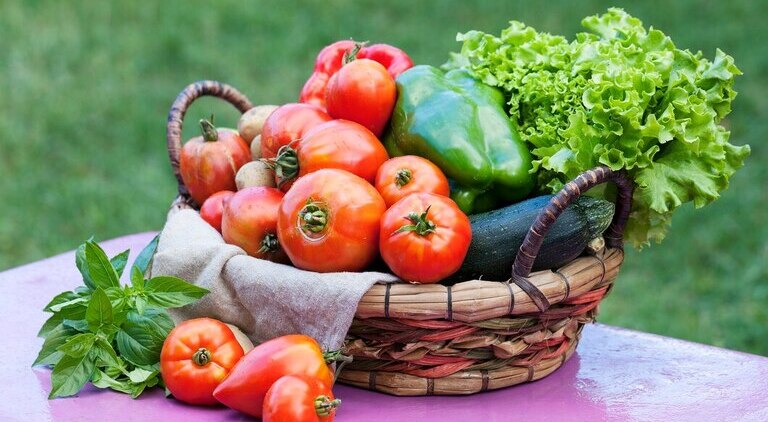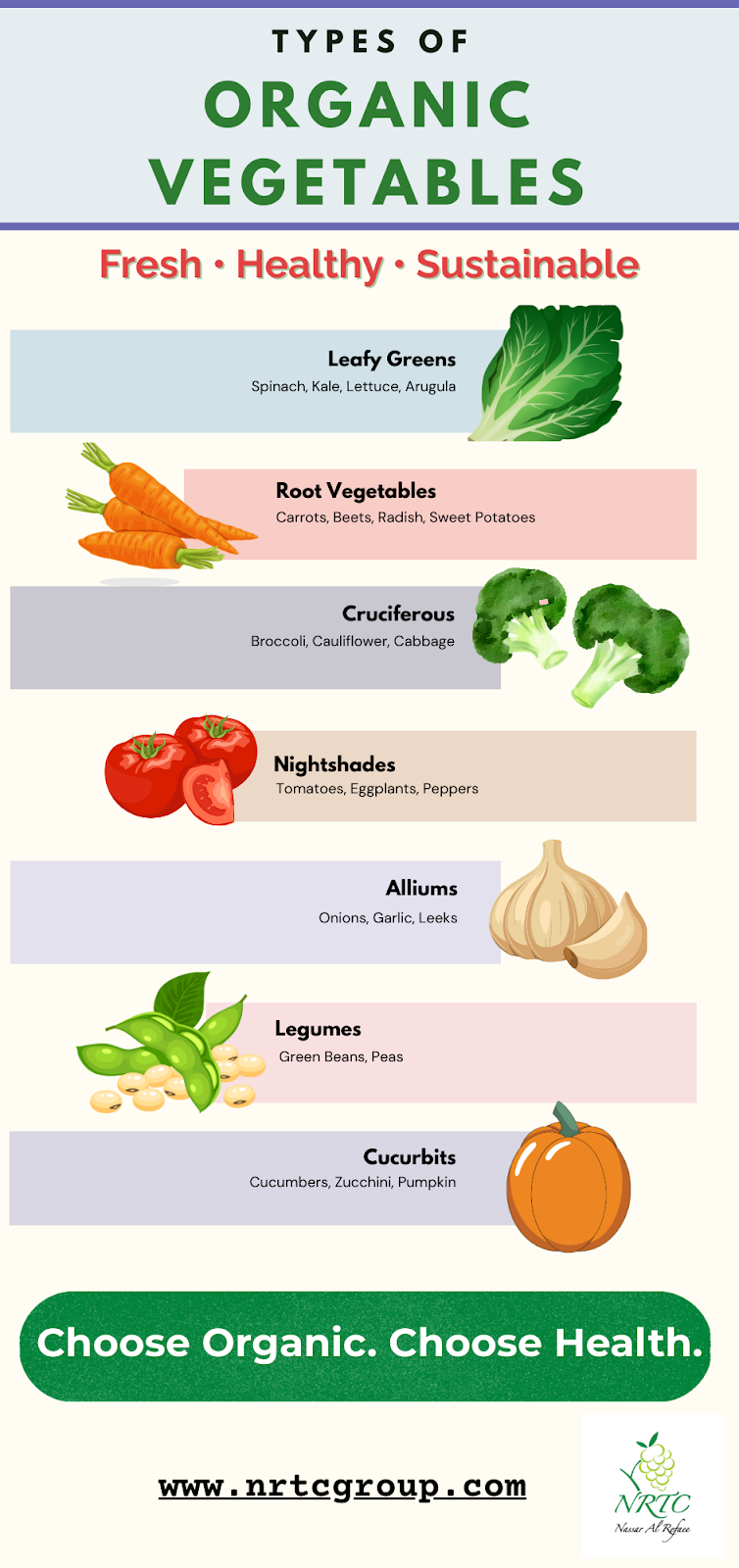
Organic vegetables are more than a passing food trend. They are a commitment to healthier, more environmentally friendly farming practices, superior soil, purer water—and ultimately healthier people and a healthier planet.
In this blog, we’ll explore what organic vegetables are, why they’re important, the types of organic vegetables, and how bulk production—especially by companies like NRTC—is changing the game. We’ll wrap up with how NRTC is moving from being just a distributor to also being a producer, and what this means for the future of organic produce.
What Is Organic Vegetables
Organic vegetables are produce that has not been raised with synthetic pesticides, chemical fertilizers, genetically modified organisms (GMOs), or irradiation. Rather, organic farming practices make use of natural fertilizers (such as compost and manure), rotating crops, companion planting, and biological pest controls. It’s not only to cultivate food; it’s to cultivate food the way that nature intended—improving soil health, saving water, preserving biodiversity, and minimizing pollution.
Key features of organic vegetables:
- Grown in naturally fertile soil without artificial inputs.
- No application of chemical pesticides or herbicides.
- Non-GMO seeds or seedlings.
- Soil health support practices: crop rotation, intercropping, composting.
- Sustainable practices (water conservation, reduced tillage, etc.).
Why Organic Vegetables Matter
Health Benefits
Organic vegetables generally contain fewer residues of artificial chemicals. Some research indicates they might be higher in some nutrients, antioxidants, or phytochemicals. For individuals who are sensitive to pesticide exposure, organic vegetables provide reassurance.
Environmental Sustainability
- Soil health: Organic methods of farming construct soil organic matter, enhance structure, minimize erosion, and optimize nutrient cycling.
- Water quality: In the absence of synthetic inputs, there’s less likelihood of run-off contaminating waterways.
- Biodiversity: Organic farms are more likely to have a higher diversity of plants, insects, and wildlife.
- Lower carbon footprint: While organic yields might be lower, activities such as composting, cover cropping, and less use of synthetic fertilizers usually reduce greenhouse gas emissions per acre.
Food Security and Resilience
Against climate change, unstable weather, and supply chain interruption, organic agriculture may provide resilience. Healthy soils contain more water, retain nutrients more effectively, and bounce back more quickly after stress. Areas that invest in organic or sustainable agriculture tend to fare better under changing conditions.
Types of Organic Vegetables
Organic vegetables exist in a variety of shapes, sizes, and forms. Some of the most common types/categories are:

Bulk Produce of Organic Vegetables
When we speak of bulk produce, we mean large-scale organic vegetable cultivation and supply—sufficient to supply supermarkets, food service operations, and major buyers instead of farmers’ markets or local markets.
Bulk producers have unique challenges:
- Ensuring consistency of quality (taste, size, freshness).
- Providing supply stability across seasons.
- Controlling organic input costs (organic fertilizers, pest management) which tend to be higher.
- Dealing with logistics: cold storage, transport, packaging, traceability.
- But mass production has its advantages as well:
- Economies of scale allow for lower cost per unit.
- Potential to make sustainable infrastructure investments—solar energy, drip irrigation, big composting units.
- Capacity to minimize environmental footprint on a bigger level.
- Improved contribution to enhancing food security by bringing healthy organic greens within reach.
NRTC: From Distributor to Producer
A good instance of how a business ventured into the bulk organic vegetables business is that of NRTC. Although NRTC was classical in its reputation as a fresh produce distributor, its recent actions exhibit a tactical initiative for upstream integration. Based on their announcement:
- NRTC purchased Al Hashemeya Farms in Egypt, which is one of the Middle East region’s largest privately owned agricultural estates.
- The farm covers approximately 10,000 acres, with advanced infrastructure—solar-powered water systems, center-pivot irrigation, etc.
- It has a potential yield capacity of up to 70,000 tonnes.
By owning and operating farms, NRTC has end-to-end control—from how the vegetables are farmed, to harvested, to delivered. This can lead to tighter control over quality, improved traceability, more secure supplies, and potentially superior prices for customers because there are fewer middlemen. It also enables investment in sustainable farming practices at scale.
Conclusion with NRTC
Organic vegetables aren’t merely a niche play—they are a key component of sustainable agriculture, public health, and environmental protection. As demand increases, so too does the imperative for stable, large-scale, sustainable producers. Businesses such as NRTC illustrate the model shift: from distribution alone to farming, from reliance on outside suppliers to having farms of their own, and from splintered supply chains to vertically integrated models.
When organizations take action at each step—soil, seed, water, harvest, distribution—not only do they enhance quality and safety, but also make organic vegetables accessible and affordable. For consumers, it translates into fresher, healthier fruits and vegetables. For communities and the planet, it translates into a better environment, resilience, and long-term food security.

